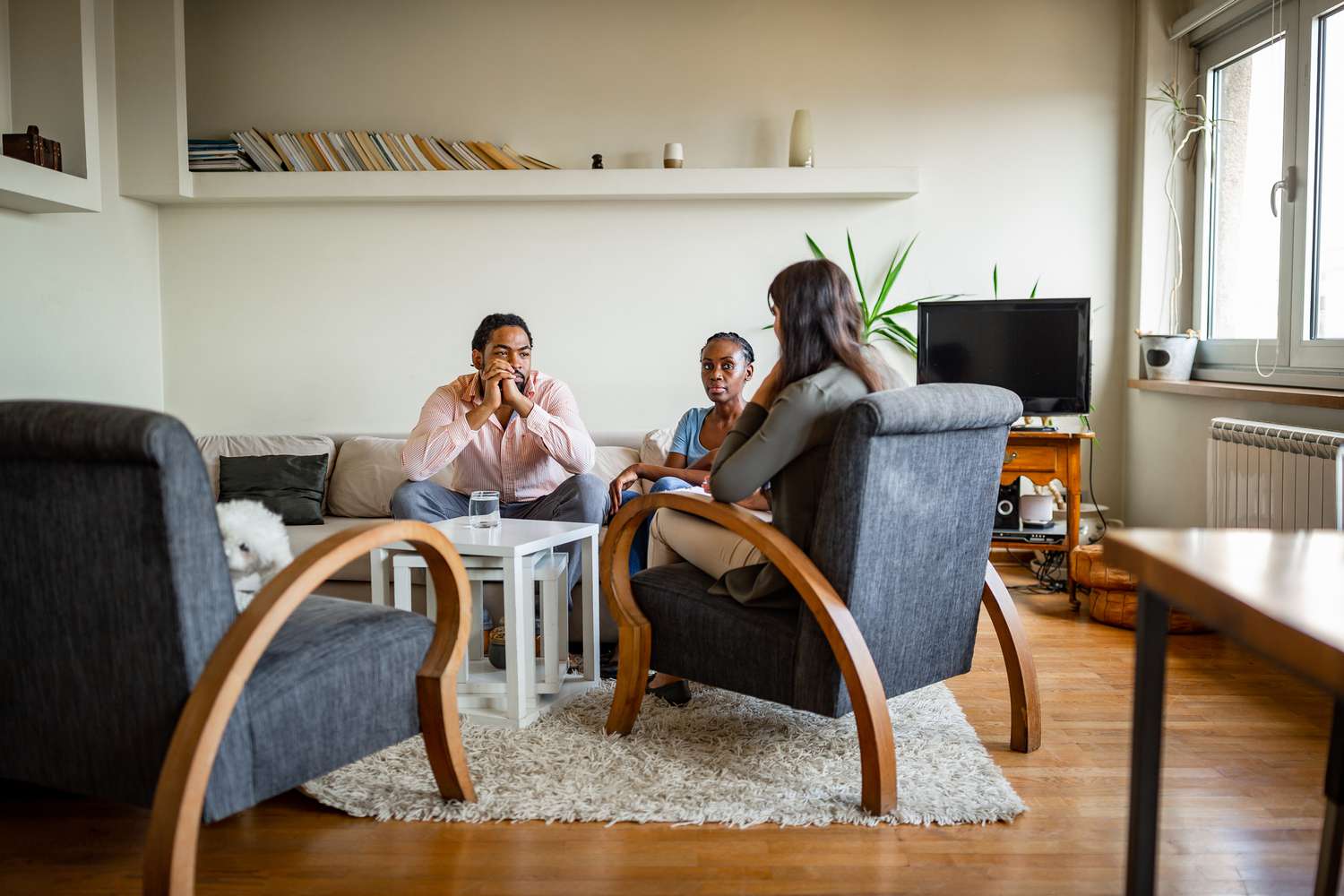
Can Couples Therapy Prevent Addiction Relapse? A Closer Look
Addiction recovery is a deeply personal and often challenging journey. For couples navigating this path together, the stakes are even higher as addiction impacts not just individuals but the dynamics of the relationship itself. One of the most significant questions asked by couples in recovery is: Can couples therapy prevent addiction relapse? At Couples Rehabs in Orange County, we believe the answer lies in understanding the power of shared healing. This article delves into how couples therapy can be a pivotal tool in preventing relapse while strengthening the foundation of your relationship.
Understanding Addiction and Relapse in Couples
Addiction doesn’t happen in a vacuum—it often disrupts relationships, communication, trust, and emotional intimacy. When both partners are affected, either as individuals battling addiction or as the support system for one another, the recovery process must address these relational dynamics.
Relapse, which is a common part of the recovery journey, can feel like a setback, but it doesn’t mean failure. In fact, studies show that up to 60% of individuals in recovery experience relapse. However, for couples, relapse can be even more damaging if the underlying issues that led to addiction aren’t addressed.
Why Address Relapse Prevention Together?
Couples who actively engage in therapy often find that their joint effort leads to:
- Improved Communication: Therapy creates a safe space to share feelings, needs, and concerns.
- Stronger Emotional Support: Building mutual understanding fosters resilience against triggers.
- Aligned Goals: Working as a team toward sobriety strengthens accountability.
At Couples Rehabs in Orange County, our programs are designed with these principles in mind, ensuring a comprehensive approach to healing for both partners.
How Couples Therapy Supports Relapse Prevention
Addressing Triggers Together
One of the primary benefits of couples therapy is identifying and managing triggers as a team. Addiction triggers may include stress, unresolved conflicts, or environments tied to substance use. In therapy, couples learn strategies to:
- Recognize potential triggers early.
- Develop coping mechanisms tailored to their relationship.
- Create a supportive home environment conducive to recovery.
Therapists at Couples Rehabs in Orange County guide couples through these processes, emphasizing practical tools that can be applied daily.
Rebuilding Trust and Accountability
Addiction often erodes trust, making it a critical component of recovery. Couples therapy provides structured sessions to:
- Address past betrayals or breaches of trust.
- Establish boundaries and expectations.
- Create accountability systems that help prevent relapse.
For example, a partner might commit to avoiding enabling behaviors, while the other agrees to open communication about cravings or struggles. These practices help rebuild the trust essential for long-term success.
Enhancing Emotional Connection
Addiction can isolate partners emotionally. Reconnecting on an emotional level strengthens resilience against relapse by fostering a sense of belonging and understanding. Therapy sessions at Couples Rehabs in Orange County often include:
- Emotional attunement exercises: Helping partners respond empathetically to each other’s needs.
- Conflict resolution strategies: Reducing friction that may act as a relapse trigger.
- Mindfulness techniques: Encouraging presence and compassion in the relationship.
Specialized Services at Couples Rehabs in Orange County
Couples Rehabs offers unique programs tailored to the needs of couples navigating recovery. Our services include:
- Couples Detox Programs: Supervised detoxification in a supportive environment designed for both partners.
- Joint Therapy Sessions: Licensed therapists lead structured sessions focusing on the couple’s dynamic.
- Individual Support: Personalized counseling ensures each partner’s needs are addressed.
- Aftercare Planning: Relapse prevention strategies and resources to maintain sobriety post-treatment.
Our location in Orange County provides a serene and private setting, ideal for couples seeking to rebuild and rejuvenate.
The Science Behind Couples Therapy and Addiction Recovery
Research consistently highlights the benefits of integrating couples therapy into addiction treatment. A study published in the Journal of Substance Abuse Treatment found that couples who participated in therapy experienced:
- Lower relapse rates: Collaborative efforts reduced individual risks.
- Improved relationship satisfaction: A stronger bond reinforced recovery goals.
- Better coping mechanisms: Skills learned in therapy equipped couples to handle stressors effectively.
At Couples Rehabs in Orange County, we utilize evidence-based approaches such as Behavioral Couples Therapy (BCT) and Emotionally Focused Therapy (EFT) to maximize these benefits.
Real Stories: Success Through Shared Recovery
Many couples who have completed programs at Couples Rehabs in Orange County share inspiring stories of transformation. One such couple, Mark and Sarah (names changed for privacy), came to us after struggling with addiction for years. Through intensive therapy, they:
- Identified and addressed deep-seated resentments.
- Built healthy communication habits.
- Created a relapse prevention plan that worked for both partners.
Today, they celebrate five years of sobriety, crediting their success to the tools and support provided during their time with us.
When Should Couples Seek Therapy for Relapse Prevention?
Couples therapy isn’t just for times of crisis. In fact, proactively seeking therapy can prevent issues from escalating. Consider therapy if:
- One or both partners is in early recovery.
- There are unresolved conflicts tied to addiction.
- Relapse triggers or behaviors are present.
It’s never too early—or too late—to invest in your relationship and recovery.

How to Get Started with Couples Rehabs in Orange County
If you’re ready to strengthen your relationship and safeguard against relapse, Couples Rehabs in Orange County is here to help. Our compassionate team will guide you through the process, from the initial consultation to personalized treatment plans.
What to Expect in Your First Session
- A welcoming and judgment-free environment.
- A thorough assessment of your unique needs.
- A roadmap for therapy, tailored to your goals.
Our facility is conveniently located in Orange County, providing easy access for local and out-of-state couples seeking a supportive space to heal.
Frequently Asked Questions (FAQ) About Couples Therapy and Relapse Prevention
1. What is couples therapy, and how does it help with addiction recovery?
Couples therapy is a form of counseling where both partners work together with a licensed therapist to address relationship challenges, improve communication, and resolve conflicts. In addiction recovery, couples therapy helps by identifying shared triggers, fostering accountability, and rebuilding trust, all of which are crucial in preventing relapse. At Couples Rehabs in Orange County, our therapy programs are tailored to address the unique needs of couples navigating recovery.
2. Can couples therapy prevent addiction relapse?
Yes, couples therapy can significantly reduce the risk of relapse by addressing the underlying relationship dynamics that contribute to addiction. It equips couples with tools to manage stress, improve emotional intimacy, and create a supportive environment. Evidence-based approaches like Behavioral Couples Therapy (BCT) have shown a strong correlation between therapy participation and lower relapse rates.
3. Is couples therapy effective if only one partner struggles with addiction?
Absolutely. Even if only one partner faces addiction, couples therapy can be invaluable. It helps the non-addicted partner better understand addiction, supports healthy boundaries, and addresses co-dependency or enabling behaviors. At Couples Rehabs in Orange County, we create personalized therapy plans that consider the needs of both partners to promote holistic healing.
4. What techniques are used in couples therapy for relapse prevention?
Couples therapy for relapse prevention incorporates a variety of techniques, including:
- Behavioral Couples Therapy (BCT): Focuses on enhancing relationship satisfaction and reducing substance use.
- Emotionally Focused Therapy (EFT): Builds emotional bonds and addresses deep-seated issues.
- Mindfulness-Based Stress Reduction (MBSR): Helps couples manage stress and triggers effectively. Our therapists at Couples Rehabs in Orange County combine these approaches to create a comprehensive treatment plan.
5. What are the signs that a couple should seek therapy for addiction recovery?
Couples should consider therapy if they experience:
- Frequent arguments tied to addiction or recovery.
- Distrust or communication breakdowns.
- Relapse triggers in their environment.
- Difficulty supporting each other during recovery.
Seeking help early through programs like those at Couples Rehabs in Orange County can prevent further strain on the relationship and promote long-term sobriety.
6. What role does trust play in preventing relapse for couples?
Trust is the cornerstone of any healthy relationship, especially in recovery. Addiction often damages trust, making its restoration essential for relapse prevention. Couples therapy focuses on rebuilding trust through open communication, accountability, and forgiveness, creating a stronger foundation for sobriety.
7. Is couples therapy at Couples Rehabs in Orange County covered by insurance?
Many insurance providers offer coverage for addiction-related therapy, including couples therapy. At Couples Rehabs in Orange County, our team works with you to verify your benefits and ensure you receive the care you need. Contact us directly for assistance with insurance-related questions.
8. How does Couples Rehabs in Orange County tailor therapy for each couple?
We recognize that every couple’s journey is unique. Our therapists conduct a thorough assessment to understand your relationship dynamics, addiction history, and personal goals. Based on this information, we design a customized therapy plan that addresses both partners’ needs while promoting mutual growth and relapse prevention.
9. What should couples expect during therapy sessions at Couples Rehabs?
Therapy sessions at Couples Rehabs in Orange County are designed to be safe, supportive, and judgment-free. You can expect:
- Open discussions facilitated by licensed therapists.
- Activities focused on improving communication and emotional connection.
- Relapse prevention strategies tailored to your relationship.
Our goal is to provide tools and guidance that help you both thrive in recovery and beyond.
10. How can couples get started with therapy at Couples Rehabs in Orange County?
Getting started is simple. Contact our team for a consultation, during which we’ll discuss your needs, outline our programs, and help you take the first steps toward healing. Located in Orange County, our serene facility provides the perfect setting for couples to focus on recovery and reconnect. Call us today to learn more about how we can support your journey.
Conclusion: A Shared Path to Healing
Preventing addiction relapse is about more than abstinence—it’s about creating a life where both partners feel supported, understood, and connected. Couples therapy is a powerful tool to achieve this, offering the structure and guidance needed to navigate recovery together.
At Couples Rehabs in Orange County, we are dedicated to helping couples build a brighter, healthier future. Whether you’re just starting your recovery journey or looking for additional support, our programs are here to meet your needs.
Take the first step today. Contact Couples Rehabs in Orange County and discover how couples therapy can transform your recovery journey—and your relationship—for the better.
Recent Comments